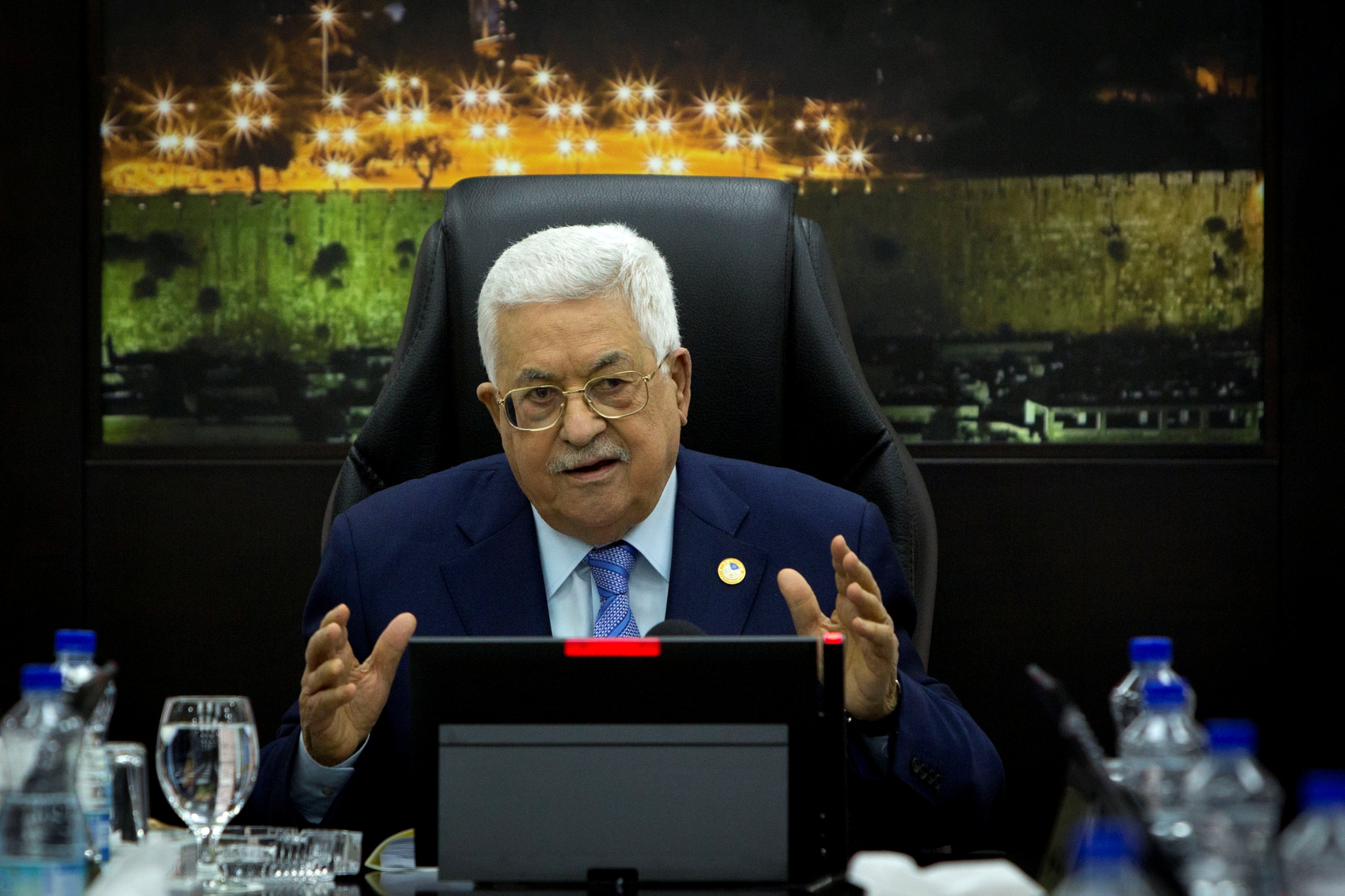Abbas says no compromise on Israeli tax funds as Palestinians suffer under austerity cuts

A row between Israel and the Palestinian Authority (PA) over deducted tax revenues reached new heights on Monday as the PA's president, Mahmoud Abbas, refused to accept anything other than the full amount his government is owed.
Tens of thousands of PA employees have been left out of pocket as austerity measures are imposed to help balance the authority's books, and are struggling to survive.
The tax revenues account for more than half of the PA’s budget, and without its primary source of income, the Ramallah-based government has been paying partial salaries to its employees, scaling back on services and increasing borrowing from local banks.
'Israel is trying to legitimise the deductions from the tax revenues by all means, but we will not concede'
- Mahmoud Abbas
Israel says the $10m it is deducting equals the amount that the PA pays the families of Palestinian political prisoners or those killed by Israel, a programme that the authority has said it is not willing to halt.
Palestinian Foreign Minister Riyad al-Maliki said on Monday that the PA has three times returned tax revenues deposited in its bank accounts by Israel, which had hoped would be quietly received despite the $10m shortfall.
New MEE newsletter: Jerusalem Dispatch
Sign up to get the latest insights and analysis on Israel-Palestine, alongside Turkey Unpacked and other MEE newsletters
According to Abbas, the PA "will not receive any money from Israel if it’s incomplete”.
“Israel is trying to legitimise the deductions from the tax revenues by all means, but we will not concede,” he told a cabinet meeting.
Already suffering
The Palestinians are already suffering from a fragile economy and increasing deficit, but Tareq al-Hajj, an expert on Palestinian economic affairs, said the cuts to the tax revenues, which act as a lifeline for the PA’s survival and continuity, dangerously exacerbate the problems.
“The deduction of tax funds means that the PA will no longer be able to pay operational expenses or employees’ salaries,” Hajj told MEE.
“Cutting off funds to the PA is equivalent to strangling it. It will directly impact Palestinian spending power and monetary mass,” he added.
Monday’s statements come a day after Israeli Prime Minister Benjamin Netanyahu and Finance Minister Moshe Kahlon reportedly held talks to find a solution for the crisis and discuss emergency plans in the event of financial collapse in the occupied West Bank.
Israeli media reported that the two debated possible scenarios and plans to be implemented to keep the Palestinian economy afloat.
'Cutting off funds to the PA is equivalent to strangling it. It will directly impact Palestinian spending power and monetary mass'
- Tareq al-Hajj, analyst
The meeting indicates that the Israeli government is considering the ramifications that a financial crisis in the occupied West Bank would have on Israel.
On Saturday, Kahlon met with Palestinian head of the general authority of civil affairs, Hussein al-Sheikh, but the latter tweeted on Monday that he restated the PA’s “refusal to receiving the funds under the policy of deductions”.
The dispute has impacted payments to some 170,000 civil servants, whose salaries add up to $2.5 billion, making up $14.5 billion of the PA’s GDP
Jafar Sadaqa, a journalist specialised in economic affairs, warned that with a chronic deficit, the PA had already exhausted its abilities to contain the crisis.
“The new Israeli pressure will only accelerate the explosion of the [long-running] financial crisis,” he said, adding that the crunch would find its way to the private sector, possibly impacting employment, poverty rates and economic output.
The World Bank warned in an April report that the real GDP growth of the Palestinian economy is projected to hover around 0.5-1.6 percent between 2019 and 2021.
Middle East Eye delivers independent and unrivalled coverage and analysis of the Middle East, North Africa and beyond. To learn more about republishing this content and the associated fees, please fill out this form. More about MEE can be found here.





